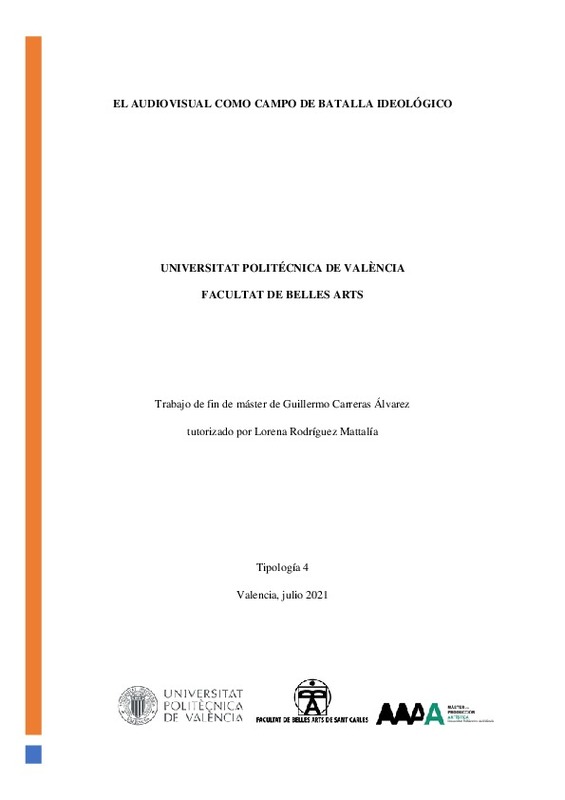JavaScript is disabled for your browser. Some features of this site may not work without it.
Buscar en RiuNet
Listar
Mi cuenta
Estadísticas
Ayuda RiuNet
Admin. UPV
El audiovisual como campo de batalla ideológico.
Mostrar el registro completo del ítem
Carreras Álvarez, G. (2021). El audiovisual como campo de batalla ideológico. Universitat Politècnica de València. http://hdl.handle.net/10251/172867
Por favor, use este identificador para citar o enlazar este ítem: http://hdl.handle.net/10251/172867
Ficheros en el ítem
Metadatos del ítem
| Título: | El audiovisual como campo de batalla ideológico. | |||
| Autor: | Carreras Álvarez, Guillermo | |||
| Director(es): | ||||
| Entidad UPV: |
|
|||
| Fecha acto/lectura: |
|
|||
| Resumen: |
[ES] La forma de exponer una obra afecta directamente a su contenido en una medida igual o superior a lo que lo hacen los elementos individualmente. El total no es simplemente la suma de las partes, sino que también está ...[+]
[EN] The way a work is exhibited directly affects its content as much asthe individual ele-ments do by themselves. The total is not simply the sum of the parts but is also made up of the way in which those parts interact. ...[+]
|
|||
| Palabras clave: |
|
|||
| Derechos de uso: | Reserva de todos los derechos | |||
| Editorial: |
|
|||
| Titulación: |
|
|||
| Tipo: |
|
recommendations
Este ítem aparece en la(s) siguiente(s) colección(ones)
-
BBAA - Trabajos académicos [5086]
Facultad de Bellas Artes







